Fury at planned $600,000 tiny home ‘vagrant village’ in Jackson, Mississippi: residents alarmed by crime near their homes, join nationwide call for out-of-town camps
Residents in Jackson, Mississippi, are angry about plans to build a $600,000 ‘village’ for the homeless, saying they worry the plan will worsen crime and nuisance in their neighborhood .
Residents are urging local leaders to scrap plans for 60 tiny homes and a community kitchen for unhoused people on an abandoned 40-acre site in West Jackson, saying it will attract more vagrants to the blighted area.
Concerns about the project echo national concerns about homelessness and come as Republican front-runner Donald Trump promises to move vagrant camps to the edges of cities and the Supreme Court is poised to take up the crisis.
West Jackson resident Sheka Epps says she supports helping the homeless, but the designated site on Caspers Avenue should be abandoned in favor of a spot away from schools and homes.
Officials in Jackson, Mississippi, say their homelessness problem is worse than the federal government acknowledges
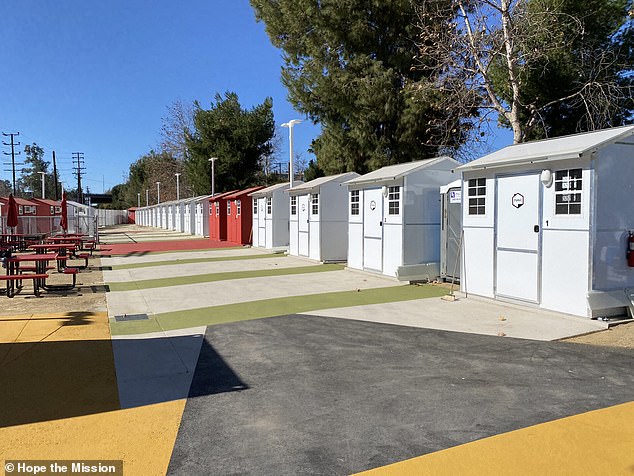
The answer, they say, is a village of “tiny homes” on an abandoned site in West Jackson, similar to this project in Los Angeles.
“It will overwhelm the area with more homelessness, more misery and more businesses leaving our area,” she told WLBT3.
‘We have a lot of land. We have a lot of land here in Jackson and in Hinds County as a whole. They can build a homeless camp anywhere on the outskirts.”
Vernon Hartley, councilor for the ward that will house the tiny houses, said he was fielding calls from residents concerned about its impact on the community.
‘There are people who say: ‘Don’t let it continue. Don’t let it continue,” he told WLBT3.
“We need to address the homeless problem in Jackson, (but) building additional facilities without managing the overall homeless population won’t do any good.”
The tiny houses cost $4,500 each, rising to $9,500 once they are connected to plumbing and electricity, organizers say.
They are often brightly colored and attractive. Although they are small and share kitchen and bathroom facilities, they offer their residents the privacy rarely found in state shelters, advocates say.
Hartley says there are better uses for community grants in an area with above-average poverty rates.
Its residents have long complained that the area’s homeless cause a range of social problems, including setting fires to maintain heat in abandoned buildings, causing properties to burn down.
Hartley said he wanted to “take care of West Jackson before we invite any more people into our community.”
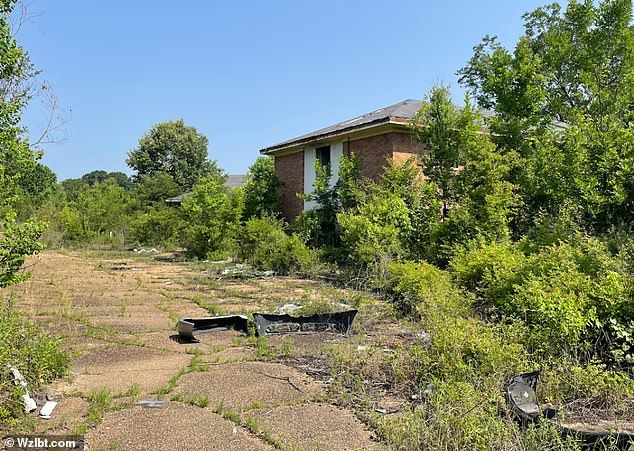
The homeless village would be built on an abandoned 18-hectare site not far from the center
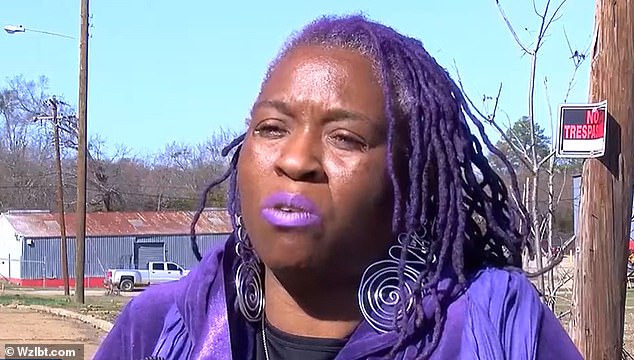
West Jackson resident Sheka Epps says the homeless village should be built on the edge of town, away from her neighborhood
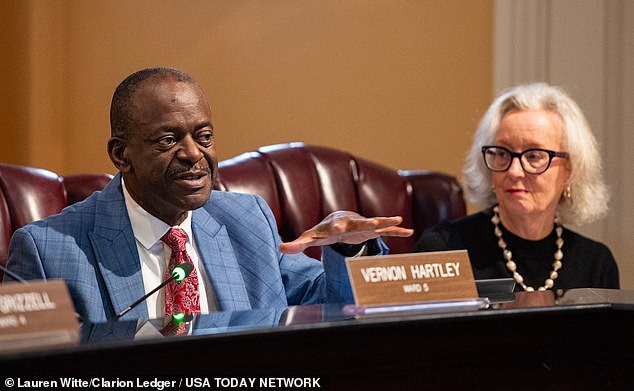
City councilor Vernon Hartley says the money would be better spent repairing homes and improving roads
“Right now we need money from the community to repair homes, clean the streets, clean up properties and help with our roads,” he told the outlet.
The councilman has pushed for stricter rules against panhandling and squatting in his area, which is close to historic downtown Jackson, and wants more surveillance cameras to monitor the neighborhood.
Spending the money on a homeless camp, which has not yet been greenlit by the City Council, would encourage more homeless people to move into the neighborhood and consume Jackson’s resources.
“If we build it, they will come,” he said.
“Right now we have a lot of homeless people in our city because there are some resources.”
Mississippi has one of the lowest homelessness rates in the country, with 982 unhoused people in the federal government’s latest survey.
Yet the state has an above-average number of long-term homeless people without any form of temporary shelter, and many of them are in the state’s capital.
Local officials say this is really the case approximately 3,000 homeless in Jackson alone.
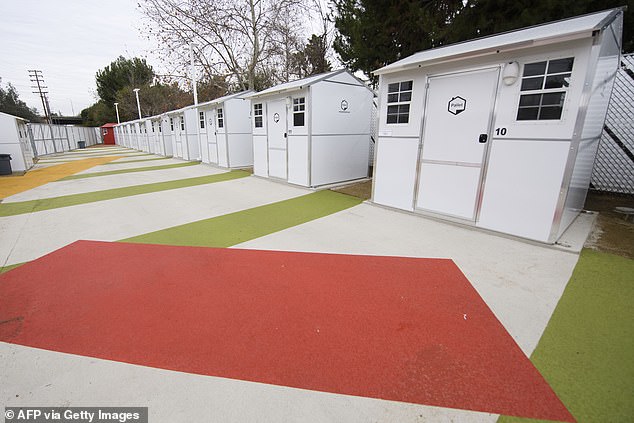
After this small home village was created for the unhoused in Los Angeles, emergency services were inundated with calls about attacks, threats, weapons, suicides and overdoses from the project
That’s why Jackson needs the homeless village, said Putalamus White, CEO of the Jackson Resource Center, which directs the program, called “Space Place, Safe Space.”
“Building this would move us in the right direction as a city,” White told a recent council meeting.
“It would certainly take a lot of our homeless population in West Jackson off the streets.”
The plan would be Jackson’s first tiny house village for the homeless.
Advocates say they have worked in Los Angeles and Portland, helping unhoused people get off the streets for good and rebuild their lives.
The concerns in Mississippi are part of a broader concern about the homelessness crisis gripping the country.
Homelessness rose 12 percent in America, reaching a record 650,000 people last year, a federal government survey found, as rents rose and Covid-era protections ended.
Like Jackson, communities across the U.S. have struggled with how to deal with the unhoused.
City leaders in San Jose, California, are discussing new rules this week to prevent vagrants from setting up camps near schools.
In Oregon, the state-funded Project Turnkey is spending millions to renovate abandoned buildings that can be used as shelters.
The Biden administration this week allocated $3.16 billion to fund more than 7,000 such projects in the US.
Officials in Portland, Los Angeles, Las Vegas and other cities have responded to public anger over homelessness in recent months by dismantling makeshift shelters and relocating people.
The Supreme Court this month agreed to consider the crackdown.
The top judicial body has accepted a request from California Gov. Gavin Newsom, a Democrat, and other Democratic and Republican elected officials about how hard to suppress people sleeping rough.
Scenes of homeless drug addicts stumbling on sidewalks and fears of violence and petty crime have become a national political issue, with former President Donald Trump making it part of his campaign platform in the 2024 race.

Donald Trump has promised to ‘ban urban camping’ and create ‘tent cities’ on ‘cheap land’ for the homeless if he is re-elected in November
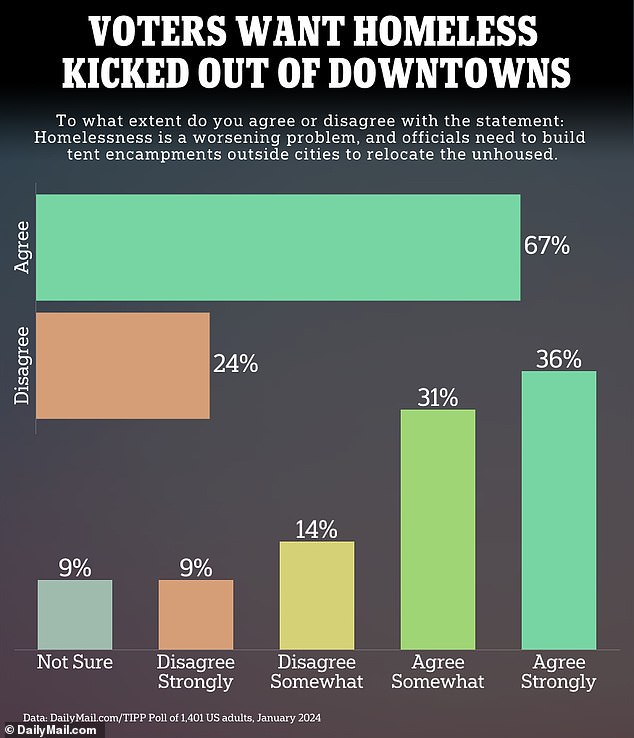
More than two-thirds of Americans say homelessness, which rose 12 percent last year, is out of control
In a video on homelessness released by his campaign, Trump said “hard-working, law-abiding citizens” were being sidelined and left to “suffer at the whims of some deeply sick people.”
He promised to “ban urban camping” and create “tent cities” on “cheap land” for the homeless, which will be staffed with doctors and social workers to get people off the streets for good.
This resonates with voters, in Jackson and beyond.
More than two-thirds of American adults say homelessness has gotten out of control and officials should move those sleeping rough to tent camps outside cities, our survey found.
The DailyMail.com/TIPP poll found that 67 percent of Americans are fed up with the country’s rapidly rising number of homeless people and want mayors to take drastic action to tackle the scourge.
Yet homeless people and their advocates say the cleanup and relocation policy is cruel and a waste of taxpayer dollars. The answer, they say, is more affordable housing, not a crackdown.
